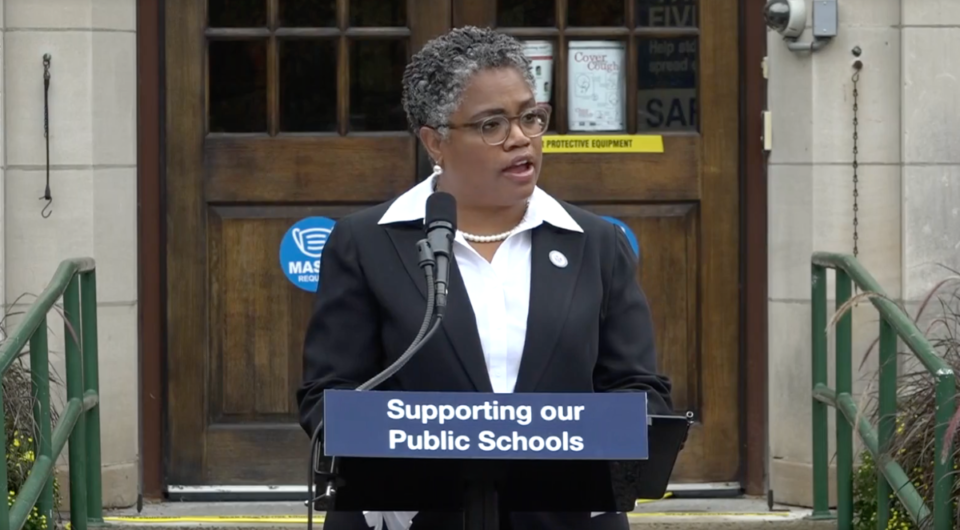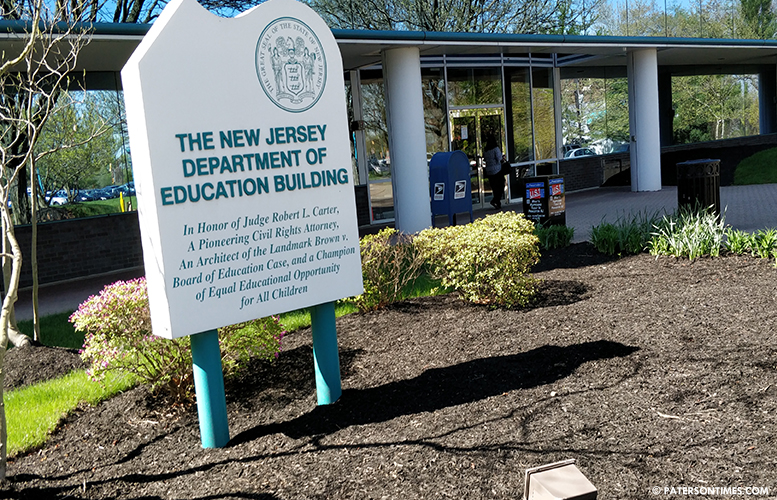Sunday Leftovers
March 15, 2015Finally, Some Unbiased Educational Statistics on Newark Public Schools
March 17, 2015Pearson, PARCC, and the N.J. D.O.E.
Amid all the mythology about PARCC tests – teachers will be fired! students won’t graduate! the tests cost too much! they undermine instruction!* – news broke this weekend of a substantive issue based not on distortion of facts but on a true error in judgement on the part of the N.J. Department of Education and Pearson, the testing vendor for PARCC.
From today’s NJ Spotlight:
Pearson, the London-based testing vendor hired this year by PARCC, has been monitoring Twitter traffic – and found evidence that some students may have tweeted messages divulging PARCC questions, or at least parts of them.
Officials in at least two New Jersey school districts – and probably more – said they had been informed by the state about suspicious student messages found on the social media platform. Details of the messages were not disclosed.
Pearson informed the state Department of Education, which then informed the districts through a scripted process of “security alerts” and “corrective actions.”
As of now, those “suspicious student messages” – i.e., students snapping screenshots of test questions and tweeting them – originated at Watchung Hills Regional High School district in Warren, Hanover Park Regional in East Hanover and South Orange-Maplewood. The story was first reported by Bob Braun on Friday and then picked up over the weekend by Mark Weber, Diane Ravitch, and Valerie Strauss. Now it’s on sites like Breitbart, Buzzfeed, DailyKos, and the Eagle Forum.
Should the DOE and individual districts be vigilant about security breaches? Sure, that’s been the protocol for years, well before PARCC replaced N.J.’s ASK and HSPA standardized tests and well before N.J. DOE’s contract with Pearson. Should Pearson be monitoring students’ twitter feeds? No. That’s just a little too Dick Cheney-ish for any parent or school staffer to stomach, as well as an ungainly infringement of student privacy.
In response to inquiries from Spotlight, the DOE said that security breaches have occurred every year during ASK and HSPA testing and, “likewise, test security measures are not new, nor are they unique to this test.” A superintendent said that “[m]y understanding is that most large companies constantly track what people are saying about their products and what is trending on social media. We strive to make sure our students know that when the post something online, it is public for all the world to see.”
A spokeswoman for Pearson said, “The security of a test is critical to ensure fairness for all students and teachers and to ensure that the results of any assessment are trustworthy and valid. We welcome debate and a variety of opinions. But when test questions or elements are posted publicly to the Internet, we are obligated to alert PARCC states. Any contact with students or decisions about student discipline are handled at the local level. We believe that a secure test maintains fairness for every student and the validity, integrity of the test results.”
Sure, but they’re still kids, adjusting, as we all are, to this brave new wikileaky world where your smartphone recommends books for you to read based on e-book acquisitions and your Facebook page customizes ads based on personal purchasing habits, where pundits wonder what damage Hillary Clinton did to her presidential prospects by using personal emails for government business. In this digital world, lines that were once clear are blurry. Where’s the boundary between due diligence and invasion of privacy?
Ambiguity aside, Pearson blew it, the victim of a self-inflicted wound. While the company isn’t “spying” (at least in the sense alleged by the anti-testing lobby), the N.J. DOE should demand that its testing vendor shut down this practice fast.
After all, in the context of this shift to new student assessments aligned with common academic standards, a few leaked questions are trivial. It’s more prudent to protect the integrity of this promising new accountability system that’s the target of so many distorted attacks. PARCC’s purpose is to provide schools, teachers, and parents with information about student growth and to promote educational equity. That mission supersedes politically-fraught security protocol. Let’s keep our eyes on the prize.
* Today’s Star Ledger has a good piece that dispels some of these myths.





2 Comments
Interesting — while I agree that this Twitter monitoring thing isn't playing well for Pearson, I don't honestly see what's wrong with them watching social media. Why wouldn't they want to follow the conversation online about the rollout of the test?
I feel like this blowback may be partly a misunderstanding about how Twitter works. They're not monitoring the individual Twitter accounts of students, they're searching for people talking extremely publicly about PARCC. Not quite the same as data privacy issues, etc.
I understand your point, Gordon. There's plenty of ambiguity here: were the teachers not properly proctoring? were the kids using hashtags? doesn't everyone know that tweets are available to anyone who wants to look?
But the whole problem should have been handled more gracefully. That's the self-inflicted wound.